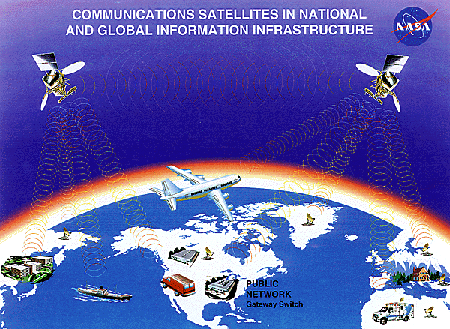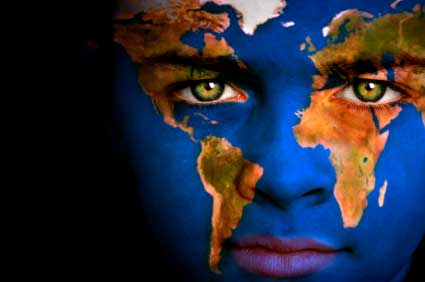 Impacts of Globalization
Impacts of GlobalizationThe forces of globalization have allowed for lesser developed countries to make meaningful socioeconomic progress and attain Western standards of living. Ever since 1950, life expectancy in many of the developing countries has increased over fifty percent. These large increases are directly linked to the lower infant mortality rates, better nutrition, improved sanitation and immunizations, and other public health advances. In addition, literacy rates in developing countries have also risen dramatically in the last fifty years. The world now has a largely educated population with a greater intellectual capacity than at any other time in history. Especially in Asia, mass public education has allowed for billions of people to increase their productivity and join together in the global economy as workers and consumers.
In recent decades, the economies of developing countries such as China or South Korea have surged so quickly that they have doubled productive output in just seven to ten years. Also, the proportion of the world's population living in poverty has dropped from over eighty percent in 1820 to less than fifteen percent in 2000, even as the world's population increased from about one billion to more than six billion people.
Furthermore, the concept of free trade has allowed for poorer countries to import more of their goods, such as fruits and vegetables, to the wealthier countries. This then allows the wealthier countries to produce more clothing and light manufactured goods for domestic consumption and export. By importing their fruits and vegetables, the wealthier country provides the poorer country with capital to improve their education and infrastructure. Over time, the poorer country should be able to produce goods such as clothing or radios, and improve their living standards.
Another positive impact of globalization is the increased purchasing power, as it allows us to work less and consume more. For example, the time needed for the average American to earn enough to buy a pound of ground beef was thirty minutes in 1919; however, in 1997, six minutes was all it took. Overall, there is a dramatic increase in the standard of living for people all around the globe, especially those in the developing countries.
Potholes on the Road to GlobalizationIn order for our world to continue to flourish, globalization must be accepted by a larger number of people. The four obstacles which stand in the way of the continued progress are: protectionism, armed conflict, environmental stress, and demographic imbalances.
Protectionism: Many arguments against globalization are directed towards its empowerment over the traditional industries and cultures. One of the main concerns is the Global Trade Policy, as it excludes developing countries from 700 billion dollars in commerce, each year. These policies deny them foreign currency and the commercial and social interaction necessary to bio-social progress. Also, it is vital for wealthy countries to let go of old industries such as apparel or agriculture, as it is far more profitable to focus on industries such as aviation, pharmaceuticals, and entertainment.
Armed Conflict: The economic, political, and cultural uncertainty surrounding areas of potential conflict restrict the flow of capital, and paralyze businesses, consumers, and investors. If economic resources continue to be used for military purposes, there will be fewer resources devoted to the development of human capital. Also, countries cannot compete economically, cultivate human capital, or develop financial markets in the midst of armed conflict.
Environmental Stress: The success of globalization is held back due to the dramatic increases in consumption. The increased consumption damages the environment, which then slows down economic progress. In order to sustain our environment, wealthier countries should increase public spending on alternative or renewable energy sources. With an alternative energy sector, there could be new economic growth areas for employment in rich countries, and countries that are over-reliant on oil exports may begin to develop and modernize. Also, developing countries would be able to build their infrastructures with a more diversified and sustainable energy approach.
Demographic Imbalances: Drastic population trends such as the youth bulge in developing nations, and the rapid aging of industrialized countries present many challenges to globalization. Large young populations in developing nations may lead to unregulated and unlawful migration, which can create long-lasting instability. On the other hand, the lower birth rates and increasing longevity of the industrialized countries stresses public pension schemes and causes the populaton to decrease dramatically.
Will Globalization Eventually Benefit the Developing World?It can be concluded that eventually, globalization will be a benefit to the developing world; however, there are many obstacles which may lead to prove otherwise. If human capital is a key component of improved living standards, increased spending on education should become a priority in both rich and poor countries. By increasing the number of educated people, there will be a wider range of workers and consumers. Furthermore, by boosting the human capital in poor countries through financial and technical aid, the number of healthy, productive workers and consumers would increase. About two billion people could overcome their daily struggles with malnutrition, HIV/AIDS, malaria, and dirty drinking water. In order for the poorer countries to become large markets for goods and services, wealthy countries should focus on higher-value-added industries for domestic consumption and export, while poorer countries should begin to focus on the lower-skilled sectors. All this can only be done over a period of time, because globalization is not a perfect process. Even if all this is done, there is no guarantee that it will greatly benefit the developing countries, or if the results will last for a long period of time. Ultimately, we as humans have the power to accept or deny the ways of globalization. If we see it as a benefit, many of us will support it; however, there will always be people who are completely against the concept of globalization.








 10:05 PM
10:05 PM
 angeline
angeline



 Impacts of Globalization
Impacts of Globalization

































